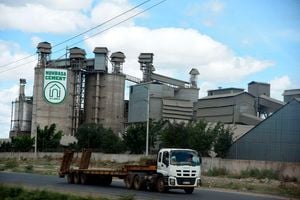
The family had constructed two maisonettes, a swimming pool and gym on the property even as an ownership dispute raged on in court.
Waving a title deed is not enough to lay claim to land, a lesson that could become expensive for the family of businessman Ramji Manji Shamji following a dispute over property he developed in Parklands, Nairobi.
The family had constructed two maisonettes, a swimming pool and gym on the property even as an ownership dispute raged on in court.
The decision could send shockwaves to several people who develop land amid ownership disputes, as it indicates the extent of losses one could incur if the final determination leans in a rival’s favour.
Mr Shamji’s son Harish Ramji testified on his behalf in court, but was unable to explain, through evidence, how the family acquired the land along 4th Parklands Avenue.
The missing links in their story could now see them hand over the property and its developments to the family of Rajnikant Nathoobhai Shah.
Mr Shah’s family filed in court a trail of documents starting from their application for allotment of the land in 1983.
Parklands is an upmarket suburb. Depending on location and proximity to key amenities, land prices in Parklands range from Sh350 million to Sh450 million per acre.
Both held title deeds
Rajnikant Nathoobhai Shah sued Mr Shamji in 2004 after it emerged that both businessmen held title deeds to the property. Mr Shah’s title deed was dated December 6, 1983 while Mr Shamji’s was issued on July 11, 2002.
Justice Christine Ochieng opted to follow the origin of both documents, a practice becoming increasingly common in disputes over competing title deeds following Supreme Court decisions on the same, and the move poked holes in Mr Shamji’s story.
When Mr Shah sued, he filed documents indicating that he acquired the land in 1983 after successfully applying for allotment from the government.
Through his son Harish Ramji , Mr Shamji claimed to have bought the land from Paul Githaiga Ng’ang’a, who had allegedly bought the land from Edward Nthuli.
Mr Ramji further claimed that Mr Nthuli bought the land from Linet Cherono, who had an allotment letter issued by the government.
But Mr Ramji could neither explain how the allotment letter was issued, nor provide any evidence of how his father paid for the land from Mr Ng’ang’a.
In one of the determining factors for Justice Ochieng, Mr Nthuli denied ever owning land in Nairobi or applying for allotment from the government.
Justice Ochieng faulted Mr Shah and Mr Ramji for failing to file any evidence showing the alleged transfers from Ms Cherono and which ended up with them as the registered owners.
“Further, the 3rd defendant (Mr Shah) cannot claim indefeasibility of title where the root is challenged. In so far as I sympathize with his plight as they have constructed thereon, he did not produce any documents to demonstrate that the root of his title was unfettered since there was no transfer presented from the 1st (Mr Nthuli) to 2nd (Mr Ng’ang’a) defendants,” Justice Ochieng said in her judgment.
Mr Shah said in his court papers that a condition for acquiring the land was to develop it within 24 months.
But there was a sewer line that was to be moved at his cost, and things went south when Trust Bank collapsed with his savings.
In 2002, Mr Shah discovered that Mr Shamji had encroached on the land. He approached the Shamjis seeking to stop them from continuing with construction, and to recover the property.
Mr Shah sued in 2004 after failing to reach an amicable settlement with the Shamji family.
Mr Ramji said he and his family got interested in the land after noticing it had remained undeveloped for several years.
Mr Ramji added that they moved the sewer line and then constructed the two maisonnettes, swimming pool and gym.
The Ramji family has been caught up in multiple land feuds before the courts. One of the court cases, against Mombasa Cement, is set to go before the Supreme Court.







